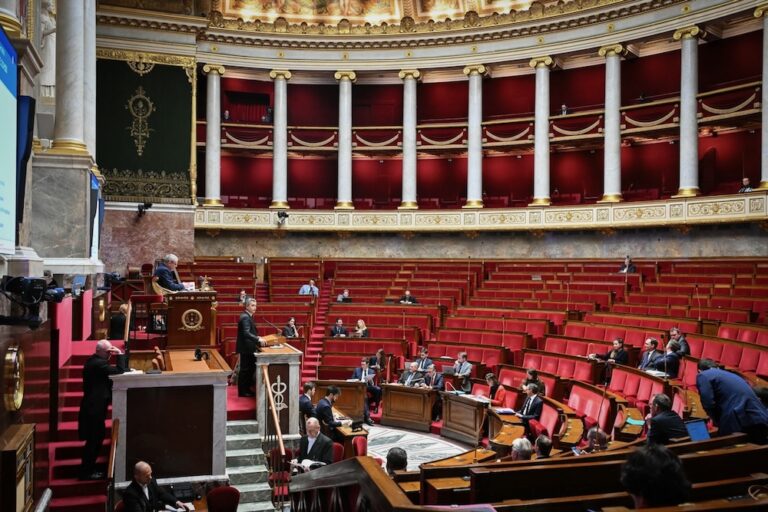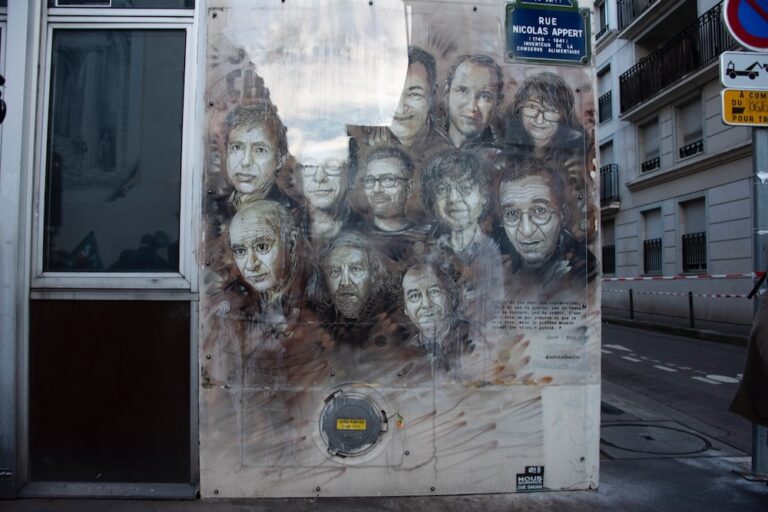At 1:00pm on June 21 1995, a team of police accompanied by Eric Lefebvre, a technician with the Conseil Superieur de l’Audiovisuel (CSA, the government body responsible for broadcast regulation in France), and Mr. Boulet of the Comite Technique Radiophonique in Marseille (CTR, responsible for technical aspects of broadcasting in the region), burst into Radio […]
At 1:00pm on June 21 1995, a team of police accompanied by Eric
Lefebvre, a technician with the Conseil Superieur de
l’Audiovisuel (CSA, the government body responsible for broadcast
regulation in France), and Mr. Boulet of the Comite Technique
Radiophonique in Marseille (CTR, responsible for technical
aspects of broadcasting in the region), burst into Radio Agora in
Grasse, France. They then proceeded to dismantle and remove the
antenna of the relay transmitter on the roof of the station, (a
relay transmitter is a small transmitter that sends the station’s
signal to the main transmitter, located at a remote site) and to
confiscate the antenna cables and the transmitter, thus reducing
the station to silence. Next they demanded that Radio Agora’s
station manager, Gilbert Andruccioli, accompany them to the
transmitter site and confiscated the relay receiver.
According to the CSA and the CTR in Marseille, the operation was
ordered by the prefect of Alpes-Maritimes, with the approval of
the president of the Conseil superieur de l’audiovisuel, Herve
Bourges.
The reasons given by the authorities are twofold:
1. The station’s relay transmitter uses a frequency of 55 Mhz, a
frequency that has been reserved for other purposes.
2. Technicians believed that the relay signal could interfere
with civilian and military security communication during the
meeting of the European Council of heads of state and government,
set to take place in Cannes at the end of June.
The Confederation nationale des radios libres (France) and the
World Association of Community Radio Broadcasters (AMARC)
strongly protest the methods used.
1. Radio Agora has used this system for over ten years. The CTR
and the CSA were well-aware of this fact and had discussed it
with the manager of Radio Agora in the past. They never once
asked that the relay system be changed. The CSA is also aware of
the financial problems facing community stations, and knows that
it would have been difficult for the station to change its relay
system. There has never been a complaint about any potential
problem. The CSA itself never indicated to the station that there
was a problem and never asked Radio Agora to conform to the
norms.
2. Even if we agree that there is a real threat to the security
of the meeting, which appears not to be true, and that it was
important to turn the relay off, was it necessary to resort to
force? Would it not have been possible to simply ask Radio Agora
to change its relay system? Radio Agora is the only station in
the region to provide airtime to immigrant communities. By
treating it in this fashion, just two days after the supporters
of intolerance and racism took power in Nice, Toulon, Marignane
and Orange, the CSA and the prefect insulted the station’s staff
and volunteers, and offended the various associations and
listeners, who have been deprived of an important means of
expression.
3. The new directors of the CSA had promised to focus special
attention on community radio, whose role has been unanimously
recognized as crucial for local communication. We are worried
about the way in which “attention” is being granted in this case.
Recommended Action
Send appeals to the President of the CSA
Appeals To
Herve Bourges
President du CSA
Tour Mairabeau 39
Quai Andre Citroen
75015 Paris, France
Fax: +33 1 45 79 00 06
Messages of support can be sent to Radio Agora in care of the
Confederation Nationales des Radios Libres:
CNRL
21 rue de Provenance
Paris, France
Fax: +33 1 42 47 09 12
Tel: +33 1 44 79 94 99
Please copy appeals to the originator if possible.


